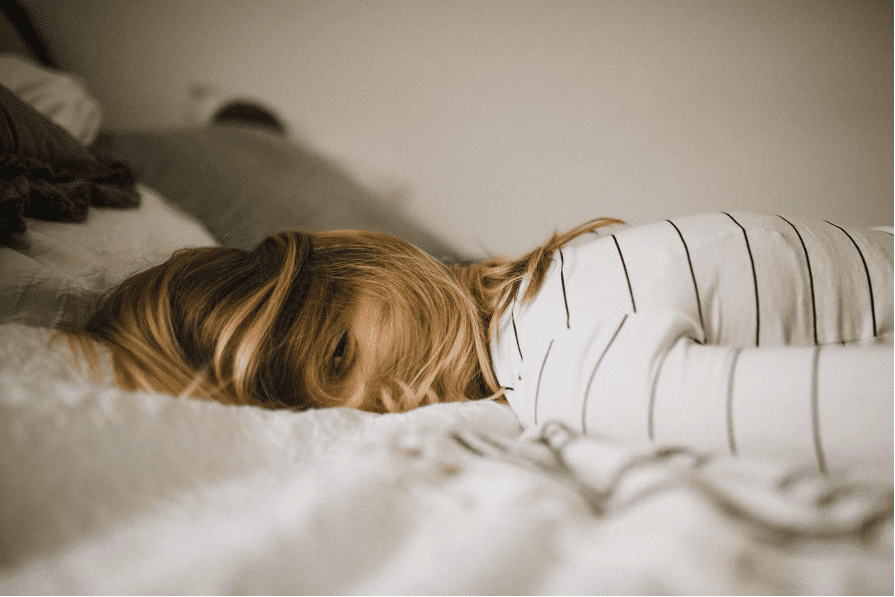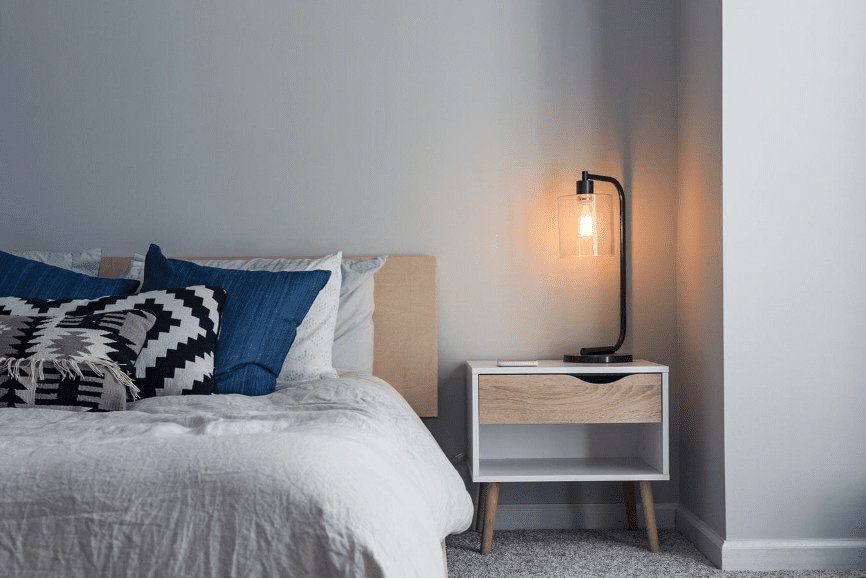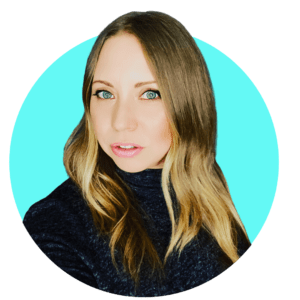5 Common Sleep Mistakes that Ruin Your Productivity

Lack of sleep is a health condition that most people have experienced at some point in their lives. A recent Relaxation Report shows that 80% of people try to recover from weekday sleep deprivation by sleeping more during the weekend, according to Princess Cruises. Sleep problems can involve falling asleep, getting up in the morning, and feeling daytime sleepiness.
Several past studies also show that failing to get a good night’s sleep can affect productivity. This can result from various factors related to brain function, creative ideas, and mental focus. I’d like to share some common mistakes to avoid. They can improve your sleep habits and boost work performance.
How Important is Sleep Quality for Better Productivity?
Sleep and productivity are two important aspects of life—individually and together. Getting a full night’s sleep and being highly productive can help to provide a fulfilling life. In fact, several studies show that getting enough sleep is critical for personal productivity.
This is because lower quality and quantity of sleep can affect cognitive function in several ways. For example, if you toss and turn all night can cause issues related to:
- Alertness
- Attention
- Reaction time
- Mental clarity
- Weaker perception
- Emotional processing
These are some of the many ways not getting 40 winks could affect how many items you can check off on your daily to-do list.
Slumber Blunders that Lower Productivity

Mistake #1: Sleep Habits
Being inconsistent
It’s not only important to be consistent to boost work productivity but also to get more sleep before your workday starts.
Maintaining regular sleep and wake times can help to achieve a consistent sleep schedule. Meanwhile, your sleep/wake cycle can get off-kilter even after you pick the right mattress if you go to sleep and get out of bed at different times.
That’s not all. These activities can also make you exhausted during the day and make it tougher to fall asleep at night.
How about just “catching up on sleep” during weekends and holidays? Well, it’s not that easy. In a sense, you can, but in the long-term, every night of sleep deprivation reduces your projected life expectancy.
Avoiding all evening exercise
Several studies show that doing light or moderate-intensity exercise one or two hours before bedtime probably won’t affect your sleep quality. In fact, research shows that people who exercise enough have a two-thirds lower risk of feeling sleepy the next day.
Keeping your workouts light and earlier can help to improve sleep quality. Still, some people might need to tweak their exercise schedule if it’s making it tough to fall asleep.
Mistake #2: Sleeping Environment
LED screens at bedtime
Sleep experts generally recommend putting down all electronic gadgets with LED screens at least one hour before sleeping. The reason is the mobile display has tiny lights that can keep you up from eye stimulation.
A big problem is the “blue light” that the screens emit. This can keep you alert during the day or night. It throws off your internal clock, which can make it difficult to doze off.
Reduce exposure to bedtime light
There are various steps you can take. Turn off overhead lights and TV screens at least two hours before bedtime. Then switch off mobile devices like smartphones and tablets at least one hour before going to sleep.
Ditching your exposure to LED light bulbs and display screens can help you to wind down and drift off to dreamland.
Mistake #3: Bedtime Rituals
Eating too much or too late
These are both things you should avoid around bedtime. An extra-large pepperoni pizza and a gallon of ice cream don’t count as ideal bedtime snacks. Your digestive system will be busy digesting a big midnight snack, for example.
It’s better to eat a light and healthy snack at least an hour before crawling into bed. It’s also good to stand up or sit upright for 15 minutes after snacking. This is especially helpful if you suffer from digestion problems like acid reflux or GERD disease.
Consuming sugar, caffeine, or alcohol
You should avoid all of these substances close to bedtime. Sugar is a stimulant that causes you to keep waking up in the middle of the night. Go with high-protein snacks instead of sweet treats close to bedtime.
It’s also good to avoid caffeine 4 to 6 hours before bedtime. Ditch the stimulant earlier if you have high caffeine sensitivity or sleep disorders like insomnia. High-caffeine drinks on the market include:
- Black coffee
- Green tea
- Caffeinated Sodas
- Energy drinks
- Sports drinks
While alcohol is a sedative, it can actually cause sleep problems during the second half of the night. This can affect your amount of rapid eye movement (REM) sleep and cause morning fatigue.

Mistake #4: Sleep/Wake Times
Hitting the snooze button
People often joke about this action to get more shut-eye, but it’s no laughing matter when it affects your sleep quality and work productivity. Here’s why. The snooze button gives you about 10 minutes of extra sleep. Studies show that “interrupted sleep” can cause more daytime sleepiness. This is because you aren’t going through all four stages of sleep, including “deep sleep.”
Taking lots of naps or sleeping in on weekends
Both these activities might seem to replace daily quality sleep, but they don’t. Try to limit daytime power naps to 30 minutes since many or late-day naps can mess up your sleep-wake cycle.
Sleeping in on weekends or holidays can have a similar effect. It disrupts your circadian rhythms, so you’ll have problems sleeping well the next night. Plus, your “life battery” never fully recovers from each night of sleep deprivation.
Mistake #5: Thoughts and Emotions
Not reducing stress
Stressbusters can help you fall asleep faster. For example, nearly 80% of American adults report that Coronavirus disease is a major stress factor in their life. Stressors produce chemicals that make it physically difficult to sleep.
Try to clear your mind before sleepy time. You can use various methods like:
- Warm bath/shower
- Read a book
- Meditation
- Light yoga
- Soft music
- Breathing techniques
Filling your mind with positive vibes can help you to stay calm and catch zzz’s.
Stop watching the news after dinner
Sure, it’s important to be informed about major COVID-19 updates that affect your city/town, county, or state, for example. That said, many sleep experts recommend not consuming news after 7:00 PM. Since about 90% of media news is negative, filling your mind with negative news can affect sleep quality.
Conclusion
Having a productive day at work, school, or home isn’t just about being diligent, efficient, and focused. Another big part is making sleep a top priority. Maximizing daytime productivity is partly about getting 8 hours of sleep and enough deep sleep. This can optimize your body’s and mind’s performance to help you get everything done well and on time.
ABOUT THE AUTHOR: BRETT
 Brett is a writer at ID-Mag. An enthusiast and expert when it comes to sleep products, Brett dedicates a lot of his time reading, researching, and reviewing about both traditional and emerging sleep brands that manufacture varied types of sleep products – from eco-mattresses, smart pillows to cooling sleep systems, Brett has probably reviewed them all. Brett also finds sleep especially important since he juggles a small business which he runs from home, makes sure he spends time with his daughter and he also writes during his spare time – you can definitely see that he needs a great forty winks all night, every night so he’ll make sure that you get great sleep, too!
Brett is a writer at ID-Mag. An enthusiast and expert when it comes to sleep products, Brett dedicates a lot of his time reading, researching, and reviewing about both traditional and emerging sleep brands that manufacture varied types of sleep products – from eco-mattresses, smart pillows to cooling sleep systems, Brett has probably reviewed them all. Brett also finds sleep especially important since he juggles a small business which he runs from home, makes sure he spends time with his daughter and he also writes during his spare time – you can definitely see that he needs a great forty winks all night, every night so he’ll make sure that you get great sleep, too!
YOU MAY ALSO LIKE
Hi! I'm Torie!
 I help entrepreneurs (like you) use digital marketing to get more clients + to make more money. And I make it easy!
I help entrepreneurs (like you) use digital marketing to get more clients + to make more money. And I make it easy!
You don’t need crazy tech skills, buckets of cash, or dedicated staff to market your business. You don’t even need a lot of time.
What you need is to be SMART.
GET SMART AF
DELIVERED TO YOUR INBOX
from your Digital Marketing Coach Torie Mathis!
Let's get SMART!
Let's Connect!



 I help entrepreneurs learn digital marketing.
I help entrepreneurs learn digital marketing.

